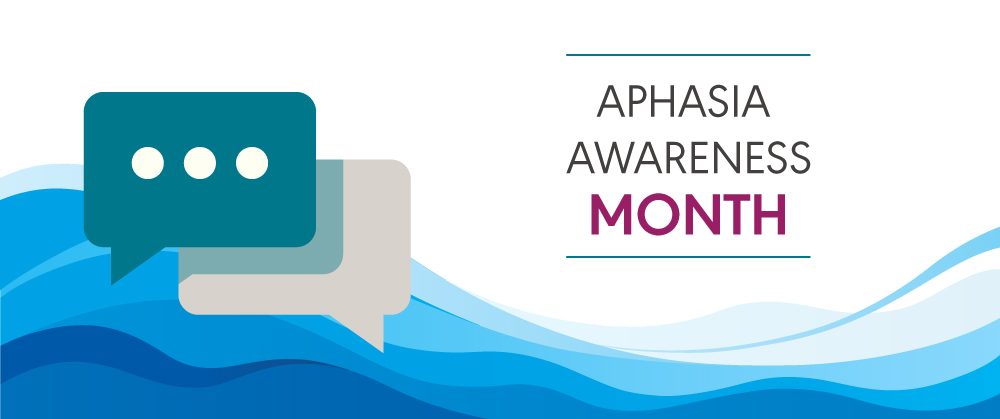Every year, ASHA’s speech-language pathologists (SLPs) see more than 100,000 Americans newly diagnosed with aphasia, in addition to millions already living with aphasia. Aphasia often follows a stroke but can also develop after traumatic brain injury, brain tumors, or neurodegenerative diseases.
Whether you’re new to treating patients with aphasia or interested in staying on top of the latest research, the ASHA journals can help. We’ve published dozens of articles on aphasia in the last year alone, and we’re highlighting the most downloaded and talked-about articles on the topic below in recognition of Aphasia Awareness Month.
Assessment and Prognostication
“Please Don’t Assess Him to Destruction”: The R.A.I.S.E. Assessment Framework for Primary Progressive Aphasia: SLPs gather important information during the assessment process, including noting deficits and decline, as a way to inform future treatment. In this article, the authors share a new assessment framework for primary progressive aphasia that focuses on person-centered assessment and supporting clients and families over time.
Prognostication in Poststroke Aphasia: Perspectives of Significant Others of People With Aphasia on Receiving Information About Recovery: When assessing people with aphasia, SLPs face the daunting process of delivering a prognosis and information about recovery to the family of a stroke survivor. Conversations with the significant others of people with aphasia informed this article, which offers SLPs tips for productive and even therapeutic prognosis conversations.
Predicting Outcomes of Language Rehabilitation: Prognostic Factors for Immediate and Long-Term Outcomes After Aphasia Therapy: In this article, the authors completed a large-scale therapy trial in aphasia, examining naming performance after treatment, as well as the predictive value of several prognostic factors. These results can help SLPs provide the families of people with aphasia with more reliable prognostications during the treatment process.
Aphasia Interventions and Support Groups
Conversation as an Outcome of Aphasia Treatment: A Systematic Scoping Review: Improving conversation abilities is often a top priority for people living with aphasia, and researchers and clinicians have developed a range of treatments to improve conversational skills. This review highlights the practices that SLPs are currently doing and identifies existing research gaps on conversation-focused treatment.
Get in Sync: Active Ingredients and Patient Profiles in Scripted-Sentence Learning in Spanish Speakers With Aphasia: Script training is a well-established treatment method for people with aphasia, but current evidence comes only from monolingual English speakers. In this article, authors adapted a scripted sentence protocol for monolingual Spanish speakers, demonstrating its effectiveness in both languages.
Designing and Implementing a Community Aphasia Group: An Illustrative Case Study of the Aphasia Group of Middle Tennessee: Community and support groups can help people with aphasia who are experiencing loneliness, social isolation, and lack of belonging. Learn about a community aphasia group that has been active for 17 years, including how they shifted to virtual meetings in response to the COVID-19 pandemic.
More Aphasia Resources
We have hundreds more aphasia articles on ASHAWire, with more being added regularly. Our Aphasia Topic Page is a great place to start. In March, a special issue of AJSLP covered the latest topics in cognitive-communication disorders, including aphasia.
June is a busy month here at ASHA; it’s also Dysphagia Awareness Month, so check back later this month with the latest resources on swallowing disorders. We strive to provide you with the most up-to-date research, new ideas, and more to help you make a difference for your clients. We hope you take advantage of these resources, free with your ASHA membership!









